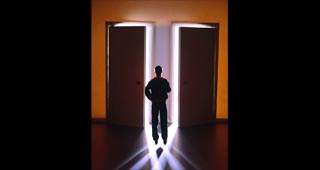The genesis of this site began with an experiment.

I have long believed that ethics-related stories consistently dominate the news. You can’t open a major newspaper without finding at least one, usually more, ethics scandals in sections A and B. But I never sat down to take a closer look. So, from January 1 until December 31, 2007 I decided to search, read and clip all the ethics-related stories I could find from the New York Times and Washington Post.
A couple of rules: I would not duplicate stories. If the Times reported on allegations of steroid use by Barry Bonds, I would not count a similar story reported in the Washington Post. Any related sidebar stories would be off limits as well. They had to be stand-alone accounts. The only exception would be a significant follow-up. Barry Bonds indictment for drug use was an important update worthy of being added to the list.
The final count came to… are you sitting down… more than 1,650 ethics-related stories for 2007. That averages 4.5 stories per day – that‘s more than the economy, more than immigration, healthcare, education, the environment, even more than the war in Iraq. A complete print out generated a document 4,055 pages long standing almost 17 inches tall!
After spending 365 days gathering all of these stories, what became clear to me was this: ethics affects all aspects of our lives – the economy, immigration, healthcare, education, the environment as well as the war in Iraq.
What is also clear is that there has been a dramatic and measurable decline in honesty and trust in America. And I will use the results of a 2006 survey to talk about this further.
This is the first of an on-going series of commentaries about ethics in America with two primary goals: First, I hope to generate a greater awareness of the importance of ethics in our lives; second, I want to foster a dialog with others about the affect ethical principles, or lack thereof have on our decision making. It’s a dialog that will include politics, sports, entertainment, immigration, religion, the environment – any area of our lives that has an ethical component, which pretty much includes every aspect of our lives.
Ethics is the infrastructure for the way things should work. It’s more than simple honesty. It’s about fairness, responsibility, promise-keeping, and respect. It’s about tolerance, loyalty, accountability, compassion and citizenship.
“Ethics,” teacher Michael Josephson says, “is not about what we say or what we intend, it’s about what we do.”
How we act will determine the purpose and course of our lives.
Comments










